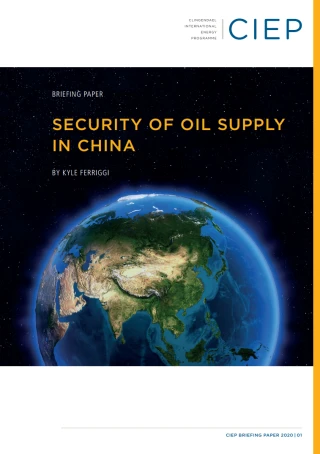
Security of Oil Supply in China
- Publication:
- CIEP, March 2020
The Covid-19 virus emerges in an environment in which China is strategically dependent on oil. More than 70% of China's oil demand is met by foreign imports, which before the viral outbreak, were already under risk of disruption, as international oil trade is increasingly subject to geopolitical actions. This has provided CIEP with the occasion to review China's security of oil supply strategy, presented in this briefing paper.
Since becoming a net oil importer in the 1990s, China's strategy for crude oil acquisition has been to prioritise investments overseas, rather than to focus on domestic production. The tactic of importing crude from different global regions is highlighted, showing China's moderate success. More recently, however, China's security of oil supply strategy appears to be under duress. The US-China trade war has resulted in cross-border energy tariffs. The US is increasingly comfortable in implementing economic sanctions, and the rise in supply disruption risk from the Middle East, have all placed China's security of oil supply under increased stress.
This current geo-political climate shows signs of intensifying. Encouraging increased domestic production of crude oil will likely take a number of years to develop, while reduced access to a wide range of crude oil exporters has already materialised. It seems increasingly likely that China will rely further on the Middle East for its oil imports, increasing traffic through the choke points of the Straits of Hormuz and Malacca.
Â





